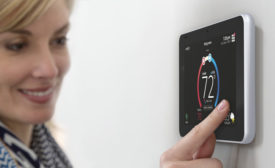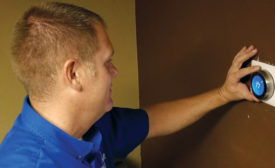Residential Controls
HVAC Contractors Talk Today’s Thermostat Market
In residential and commercial settings, smart and Wi-Fi thermostats are becoming more mainstream
Read More
In a World of Connected Devices, Thermostats and Controls Are the Key to Success
How well do you know HVAC stats?
Read More
The Time for Integrating Home Automation Technology Is Now
Smart home energy management improves home-performance contracting
Read More
Meet Resideo: Honeywell’s New Stand-Alone Smart Home Spin-Off
“New look, same great taste” or a harbinger of things to come?
Read More
Contractors Use Smart Sales for Smart Homes
HVAC contractors, manufacturers share how to close the deal
Read More
Copyright ©2024. All Rights Reserved BNP Media.
Design, CMS, Hosting & Web Development :: ePublishing














